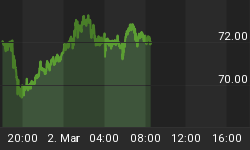The New York Times Op-Ed contribution Lost in the Woods summarizes nicely the dispute between Canada and the US over lumber. Following are the key paragraphs:
American and Canadian lawyers, lobbyists and negotiators have been fighting on and off over Canadian lumber exports to the United States since the 1980's. In 1982, a coalition of 250 American lumber mills claimed that Canadian provinces were subsidizing lumber exports by charging set "stumpage fees" - the price forest companies paid when harvesting standing timber - while American mills were paying open market prices. While the fight over things like stumpage fees is complex enough, it got a sharp twist in 2000 when Congress passed an amendment giving American companies injured by foreign trade the punitive duties imposed by the United States, which in the case of Canadian lumber exports now amount to about $5 billion.
Never mind that the right of the United States to impose such duties is in dispute, or that the W.T.O. declared the Byrd amendment (named after its creator, Senator Robert C. Byrd) illegal. American and Canadian officials now face two lumber disputes: the old one about timber management practices; and the new one about who owns the money held by the Treasury. Making things uglier are conflicting decisions by a panel convened under the North American Free Trade Agreement and by the W.T.O., with the United States claiming that favorable rulings by the latter trump adverse rulings by the former.
Canadians, including the normally friendly Canadian business community, are particularly outraged that Washington has rejected the Nafta panel decision. In Canadian eyes, this refusal by the United States betrays the central deal that underpinned Nafta in the first place: Canada allowed unfettered access to its energy resources and an end to restrictions on American investment in return for a binding method of settling disputes. As Prime Minister Paul Martin made clear recently, the dispute is coloring everything from the oil and gas trade (Canada is the largest foreign supplier of energy to the United States) to cooperation in the World Trade Organization, the International Monetary Fund and World Bank.
If a supposedly big advocate for "free trade" can not even resolve a relatively minor dispute with its biggest trading partner when it is clearly wrong, what hope do any free trade talks have down the road? One has to wonder just how much the lumber lobby contributed to the Presidential and Congressional campaigns.
Lawrence Herman and Gary Hufbauer, the authors of Lost in the Woods, proposed appointing "a special envoy with the authority to negotiate a final and durable compromise by a date certain, say June 2006".
No! As far as I am concerned there is simply nothing to negotiate. The Byrd amendment is illegal, the US has illegally confiscated $5 billion from Canada, and worst of all the United States betrayed the deal that underpinned Nafta in the first place: Canada allowed unfettered access to its energy resources and an end to restrictions on American investment in return for a binding method of settling disputes. Not only does the US refuse to honor Nafta agreements with Canada, it will not even honor agreements as to resolving disputes.
What's stupid about all of this is cheaper lumber is desperately needed in the US. With the cost of lumber high and lumber demands up in the wake of several hurricanes, not to mention the stupid waste of paying more than necessary to build houses just to make a few lumber barons rich, one would think that it would be to our advantage to increase the supply at a cheaper cost. But no. We do not honor our own agreements with our biggest trading partner, even when it is obviously to our own advantage to do so.
That is a pretty pathetic record on "free trade" in general and Nafta specifically. It is certainly not a record one would expect unless from "free trade' advocates unless there was a lot of money sloshing around somewhere to keep the status quo of illegal tariffs. I suggest it is high time for Canada to demand the US honor its agreements.
If the only way to get trade agreements honored is to make it extremely painful to those not honoring them, then so be it. Canada can end this mess in about two days flat if it wants to. As a free trade advocate, I recommend that Canada threaten to shut off all oil and Natural Gas deliveries to the US on one weeks notice if the US will not abide by its trade agreements.
Playing hardball over softwood would not only end this nonsense in a hurry, it would also send a strong message to every country about the consequences of ignoring trade agreements for political convenience. Just to make sure people do not mistake this for USA bashing, the EU is equally guilty with their protectionist farm subsidies. The difference being (for now), no one has either the political will or a bat big enough to force changes in the EU. Canada does, and theyshould use it.
















